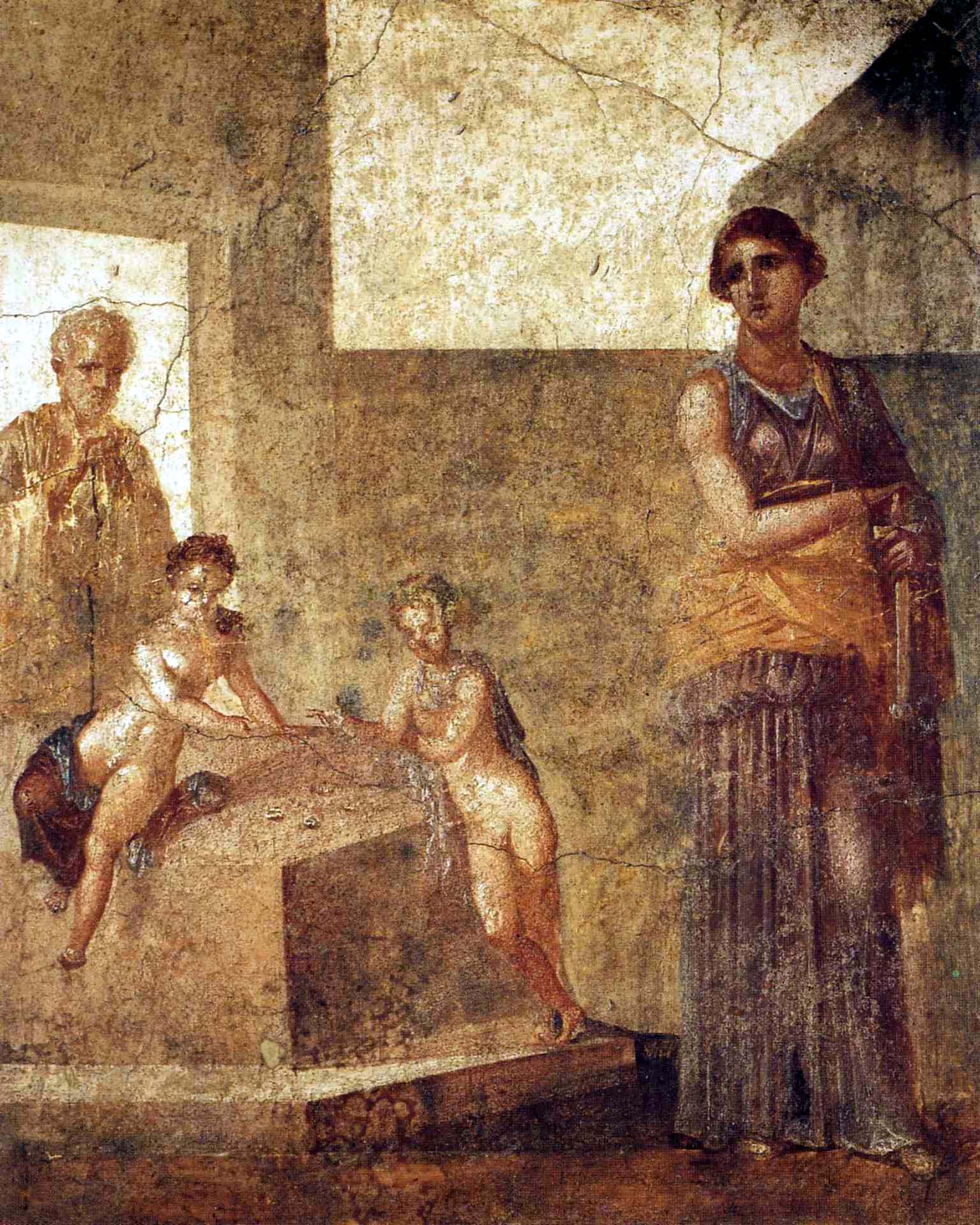In this episode, we discuss the life, theatrical innovations, and tragic works of the third great Athenian playwright, Euripides; and the historical context and major themes of his earliest surviving plays—Cyclops, Rhesos, Alkestis, Medeia, and Hippolytos
480 BC - Euripides is born
455 BC - Euripides competes in his first Dionysia (unknown work)
ca. 442-441 BC - Euripides wins his first victory at the Dionysia (unknown work); Sophocles stages trilogy with Antigone and Ajax (his oldest surviving plays)
438 BC - Euripides stages a tetralogy with Alcestis (mixed satyr/drama) as the fourth play
431 BC - Aeschylus' son, Euphorion, wins first prize at the Dionysia (unknown work); Sophocles places second (unknown work); Euripides places third (trilogy with Medea)
430 BC - Euripides stages trilogy with The Children of Herakles
428 BC - Euripides stages trilogy with Hippolytus and takes first place; Sophocles' son, Iophon, places second (unknown work); Ion places third (unknown work)
ca. 428-425 BC - Euripides stages trilogy with Andromache
424 BC - Euripides stages trilogy with Hecuba
423 BC - Euripides stages trilogy with The Suppliants
ca. mid-410s BC - Euripides stages trilogy with Electra
416 BC - Euripides stages trilogy with The Madness of Herakles
415 BC - Euripides stages trilogy with The Trojan Women and takes second place; defeated by Xenokles (unknown work); third place is unknown
ca. 414-412 BC - Euripides stages trilogies with Iphigenia in Tauris and Ion
412 BC - Euripides stages trilogy with Helen
412-408 BC - Euripides stages trilogy with The Phoenician Women
408 BC - Euripides stages trilogy with Orestes
ca. 408-406 BC - Euripides migrates to the court of Archelaos, King of Macedon, where he composed a play in his honor, titled Archelaos (lost work)
406 BC - Euripides dies while in Macedon
405 BC - Euripides' son or nephew posthumously wins first prize at the Dionysia by staging trilogy with his last two completed surviving plays, Iphigenia in Aulis and The Bacchae; the third play, Alcmeon in Corinth, survives only in fragments
Primary Sources:
Supplementary Resources (Videos, Photos, Other Podcasts)
Photo/Statuette of Seated Euripides

Video/Jason and the Golden Fleece & Euripides' Medea (The Western Canon)

Recommended Podcast Episodes:
***History of European Theatre - Medea: Beware a Woman Scorned
***Literature and History - Euripides' Medea
***MythTake - Medea
***Literature and History - Euripides' Medea








No comments:
Post a Comment